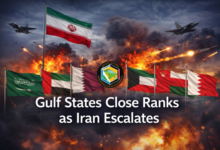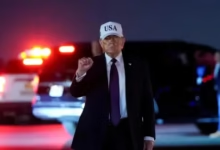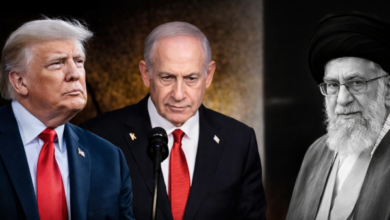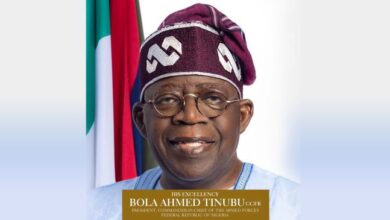NFF EXCO: A CASE OF REVOLVING CHAIRS?
 Like a swivel chair, the crisis rocking the Nigerian Football Federation has kept resurfacing like the proverbial Abiku. Close watchers however believe that sharing the ‘cake’ is at the heart of these crises.
Like a swivel chair, the crisis rocking the Nigerian Football Federation has kept resurfacing like the proverbial Abiku. Close watchers however believe that sharing the ‘cake’ is at the heart of these crises.
The Super Eagles of Nigeria qualified for the Russia 2018 World Cup after finishing top in their group B. According to Nigeria Football Federation (NFF) President Amaju Pinnick, the qualification automatically earned them a whopping sum of $2m from world football governing body FIFA. The money was allocated in order to help NFF meet all their financial obligations to the players ahead of time. The President also confirmed that $800,000 was also raised in addition to the money allocated by FIFA.
Though the Super Eagles did not progress past the group stage, for the first time, we can categorically say the cause for them not progressing further was not caused by monetary issues. Adequate financial plans and preparations were made ahead of time. The collaboration with Nike who was the official clothiers for the Super Eagles saw the Super Eagles home jersey (white and green) voted as the best jersey in the Russia 2018 World Cup. The jersey sold out 48 hours after its official launch in Nike store UK.
It would be recollected that the Super Eagles created an international scandal in Namibia en-route to the 2013 FIFA Confederations Cup in Brazil when they refused to board their flight over their lack of payments owed to them. The players further went ahead to boycott training before the second round match against France; which Nigeria lost and left the tournament.
Another similar embarrassing situation occurred during the 2016 Olympics preparation; as the sports ministry failed to adequately provide travel plans for the team to land in Brazil. The team which was scheduled to travel on August 2nd 2016 via a chartered flight realized just hours before takeoff that the sports ministry failed to make payments to the plane company. To save face from an embarrassing situation, the sports ministry reportedly arranged for another flight on August 3rd, but the plan fell through after the plane was deemed too small.
After much ado, the team finally made it to their destination seven hours before their first match against Japan. Mismanagement of funds plays a major part in the heightened crisis plaguing in the Nigeria Football Federation. The unending crisis that engulfed the Nigeria Football Federation (NFF) since 2014 shows no sign of abating anytime soon after the recent showdown by Chris Giwa at the NFF headquarters in Abuja.
While FIFA-recognized NFF President Amaju Pinnick was away in Russia on FIFA duties during the 2018 FIFA World Cup, Nigeria’s football bureaucracy fell into total chaos on Monday July 2, 2018 when self-acclaimed NFF President Chris Giwa, escorted by armed security agents, stormed NFF headquarters in Abuja on the insistence of assuming office as the substantive President of NFF.
Chris Giwa displayed his daring act at the prompting of the Sports Minister, Solomon Dalung. Dalung reportedly directed NFF to adhere with the judgment passed by the Supreme Court when it overturned the election of the current NFF President, Amaju Pinnick.
Upon Chris Giwa’s arrival at the NFF headquarters also called the Glass House, he told journalists on his assumption that FIFA would not ban the country, explaining that it was those with the intentions of perpetuating injustice that are bandying that notion.
“I want to assure Nigerians that there is no reason for that, nobody should be afraid,” Mr Giwa reassured. ”The issue of a ban is coming up from people who are talking from their own personal interests and what has happened is in the status and FIFA is an organization that is guided by a status. There is nothing that has taken place here that is not in the status,” he said.
”We agreed to be one family and we have agreed to associate ourselves with the Federation International Football Association (FIFA). We have their statutes here and we are very hopeful that very soon, it’s going to be a law here,” he added.
We recollect this issue between Amaju Pinnick and Chris Giwa arose after the August 26 2014 NFF Presidential elections. Where, Giwa staunchly insisted that he won the election which FIFA claimed not to recognize. During the brouhaha, FIFA threatened to ban Nigeria from participation in any competition if the issues were not resolved.
On September 30th 2014, another election held in Warri, Delta State where Pinnick won, beating the likes of Taiwo Ogunjobi, Dominic Iorfa, Amanze Uchegbulam and Mike Umeh.
These factional elections in Abuja and Warri have been the bane of Nigerian football in the past four tumultuous years.
Giwa has been contesting the authenticity of the Pinnick-led NFF board since the 2014 election. The crisis saw Giwa take the case to the Court for Arbitration of Sports, consequent upon which FIFA banned him from every football-related activity.
Upon appointment of Solomon Dalung as the Minister of Sports, the federal government, through the Minister directed Amaju Pinnick to step down from his position as the substantive NFF president. The sports ministry, in the statement, directed the NFF to comply with a court order setting aside the election into the Executive Committee of the NFF held on September 30, 2014.
But a meeting between Pinnick and Giwa ended in a scuffle between both parties in 2016. In April 2016, the Federal High Court nullified the September 30th election that voted in Pinnick as NFF boss, reinstating Chris Giwa as the new boss. Reacting to the court order, FIFA stepped in again, threatening to sanction Nigeria if Pinnick was removed as NFF President.
In May 2016, Giwa was reportedly arrested while trying to force his way into the NFF secretariat. A disciplinary committee set up by the NFF in May 2016 announced a five-year ban on Chris Giwa for illegally representing the federation.
That didn’t halt Giwa’s moves as he insistently continued to identify himself as the legitimate president of the NFF. In June 2016, he and his group again stormed the Glass House where he harassed staff of the federation. The House of Representatives and its committee on sports stepped into the issue backing Pinnick as the president of the NFF.
In a blow for his tussle for the Presidency, FIFA in June 2017 extended Giwa’s ban from football to 10 years. Days later, the Supreme Court dismissed Giwa’s notion against the NFF and fined him N100, 000 as he continued to lose on all fronts.
After a long halt to the tussle, the Giwa faction returned in April 2018 with a report that the Supreme Court had ousted Pinnick as NFF boss; an action which was backed by the Sports Minister Solomon Dalung. A report quickly dismissed by Festus Keyamo who represents the Amaju Pinnick-led NFF board. Keyamo explicitly stated a section which read that “banning Nigeria would be one of FIFA’s considerations”.
“In a letter written to Giwa’s lawyers by FIFA for the umpteenth time, FIFA is the world’s football governing body, and the NFF is an affiliate of FIFA. FIFA will not abide by any decision delivered by the local court; he stated.
World football governing body FIFA has continued to insist that they do not back the election that voted Giwa as president of NFF and continue to back Pinnick as Nigeria’s solely recognized NFF President. Perhaps, sensing danger, the Presidency finally waded into the matter on July 23, and ejected the Giwa team from the NFF secretariat and reinstalled the Pinnick-led executive amid the loud protestations of the minister of sports. As this game of revolving chairs is finally settled, one can only hope that the gladiators in NFF will stop being a serial source of embarrassment to Nigeria if indeed their motive is selfless service to the nation’s football.
By Amaka Akachukwu











